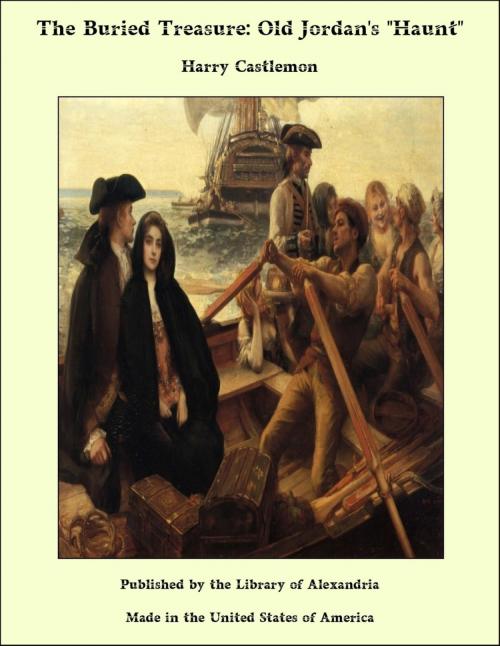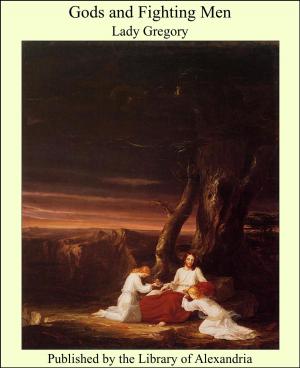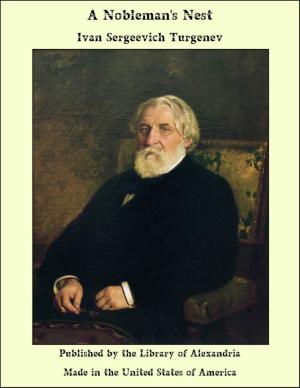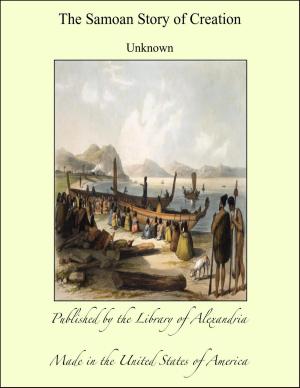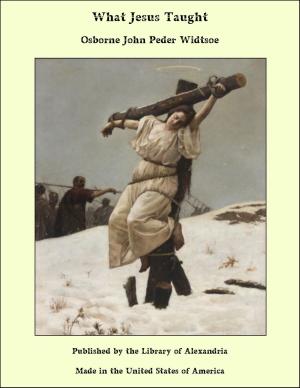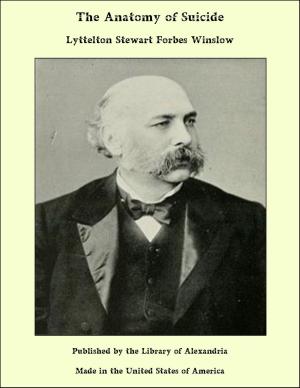The Buried Treasure: Old Jordan's "Haunt"
Nonfiction, Religion & Spirituality, New Age, History, Fiction & Literature| Author: | Harry Castlemon | ISBN: | 9781465618870 |
| Publisher: | Library of Alexandria | Publication: | March 8, 2015 |
| Imprint: | Language: | English |
| Author: | Harry Castlemon |
| ISBN: | 9781465618870 |
| Publisher: | Library of Alexandria |
| Publication: | March 8, 2015 |
| Imprint: | |
| Language: | English |
“WAL, of all the dinners that ever a white man sot down to, this yere is the beat!” The speaker was Godfrey Evans—a tall, raw-boned man, dressed in a tattered, brown jean suit. He was barefooted, his toil-hardened hands and weather-beaten face were sadly soiled and begrimed, and his hair and whiskers looked as though they had never been made acquainted with a comb. As he spoke he drew an empty nail-keg from its corner, placed a board over the top of it, and seating himself, ran his eye over the slender stock of viands his wife had just placed on the table. The man’s appearance was in strict keeping with his surroundings. The cabin in which he lived and everything it contained told of the most abject poverty. The building, which was made of rough, unhewn logs, could boast of but one room and a loft, to which access was gained by a ladder fastened against the wall. It had no floor and no windows, all the light being admitted through a dilapidated door, which every gust of wind threatened to shake from its hinges, and the warmth being supplied by an immense fire-place with a stick chimney, which occupied nearly the whole of one end of the cabin. There were no chairs to be seen—the places of these useful articles being supplied by empty nail-kegs and blocks of wood; and neither were there any beds—a miserable “shake-down” in one corner being the best in this line that the cabin could afford. Everything looked as if it were about to fall to pieces. Even the rough board table on which the dinner was placed would have tumbled over, had it not been propped up against the wall. Godfrey Evans had seen better days. He had once been comparatively well off in the world; but he had lost all his property through no fault of his own, and the loss so disheartened him that he would make no effort to accumulate more. At his time of life it was too late to begin again with empty hands, he said; so he accepted the situation, but with a very bad grace, and spent the most of his time in roaming about the woods with his gun on his shoulder, and the rest in bemoaning his altered circumstances, and denouncing those of his neighbors who were more fortunate than himself. Godfrey’s family consisted of a wife and two sons—the latter aged respectively seventeen and fifteen years. His wife was a meek-faced woman who had seen a world of care and trouble, and who, while submitting patiently to her hard lot, hoped for better things, and placed unbounded confidence in her youngest son, David, who was animated by an energetic, manly spirit, which contrasted strangely with his father’s indolence and indifference. Godfrey seemed content to pass the remainder of his days in that hovel, destitute of all the comforts, and even suffering for many of the necessaries of life; but David was not. He had high aspirations, had formed plans, and, better than that, he had perseverance and pluck enough to carry them out. Of him and his brother, Daniel, we shall have more to say as our story progresses. It will be enough, now, to tell the reader that if they had been utter strangers, they could not have been more unlike each other. David was of a lively, cheerful disposition, and his entry into the comfortless hovel he called home, was like a ray of sunshine bursting through a storm cloud. Daniel, on the other hand, was like his father, morose and sullen, and when he came home from the woods or the steamboat landing, where he spent the most of his time, it seemed as if a thunder cloud had suddenly settled down over the cabin.
“WAL, of all the dinners that ever a white man sot down to, this yere is the beat!” The speaker was Godfrey Evans—a tall, raw-boned man, dressed in a tattered, brown jean suit. He was barefooted, his toil-hardened hands and weather-beaten face were sadly soiled and begrimed, and his hair and whiskers looked as though they had never been made acquainted with a comb. As he spoke he drew an empty nail-keg from its corner, placed a board over the top of it, and seating himself, ran his eye over the slender stock of viands his wife had just placed on the table. The man’s appearance was in strict keeping with his surroundings. The cabin in which he lived and everything it contained told of the most abject poverty. The building, which was made of rough, unhewn logs, could boast of but one room and a loft, to which access was gained by a ladder fastened against the wall. It had no floor and no windows, all the light being admitted through a dilapidated door, which every gust of wind threatened to shake from its hinges, and the warmth being supplied by an immense fire-place with a stick chimney, which occupied nearly the whole of one end of the cabin. There were no chairs to be seen—the places of these useful articles being supplied by empty nail-kegs and blocks of wood; and neither were there any beds—a miserable “shake-down” in one corner being the best in this line that the cabin could afford. Everything looked as if it were about to fall to pieces. Even the rough board table on which the dinner was placed would have tumbled over, had it not been propped up against the wall. Godfrey Evans had seen better days. He had once been comparatively well off in the world; but he had lost all his property through no fault of his own, and the loss so disheartened him that he would make no effort to accumulate more. At his time of life it was too late to begin again with empty hands, he said; so he accepted the situation, but with a very bad grace, and spent the most of his time in roaming about the woods with his gun on his shoulder, and the rest in bemoaning his altered circumstances, and denouncing those of his neighbors who were more fortunate than himself. Godfrey’s family consisted of a wife and two sons—the latter aged respectively seventeen and fifteen years. His wife was a meek-faced woman who had seen a world of care and trouble, and who, while submitting patiently to her hard lot, hoped for better things, and placed unbounded confidence in her youngest son, David, who was animated by an energetic, manly spirit, which contrasted strangely with his father’s indolence and indifference. Godfrey seemed content to pass the remainder of his days in that hovel, destitute of all the comforts, and even suffering for many of the necessaries of life; but David was not. He had high aspirations, had formed plans, and, better than that, he had perseverance and pluck enough to carry them out. Of him and his brother, Daniel, we shall have more to say as our story progresses. It will be enough, now, to tell the reader that if they had been utter strangers, they could not have been more unlike each other. David was of a lively, cheerful disposition, and his entry into the comfortless hovel he called home, was like a ray of sunshine bursting through a storm cloud. Daniel, on the other hand, was like his father, morose and sullen, and when he came home from the woods or the steamboat landing, where he spent the most of his time, it seemed as if a thunder cloud had suddenly settled down over the cabin.
